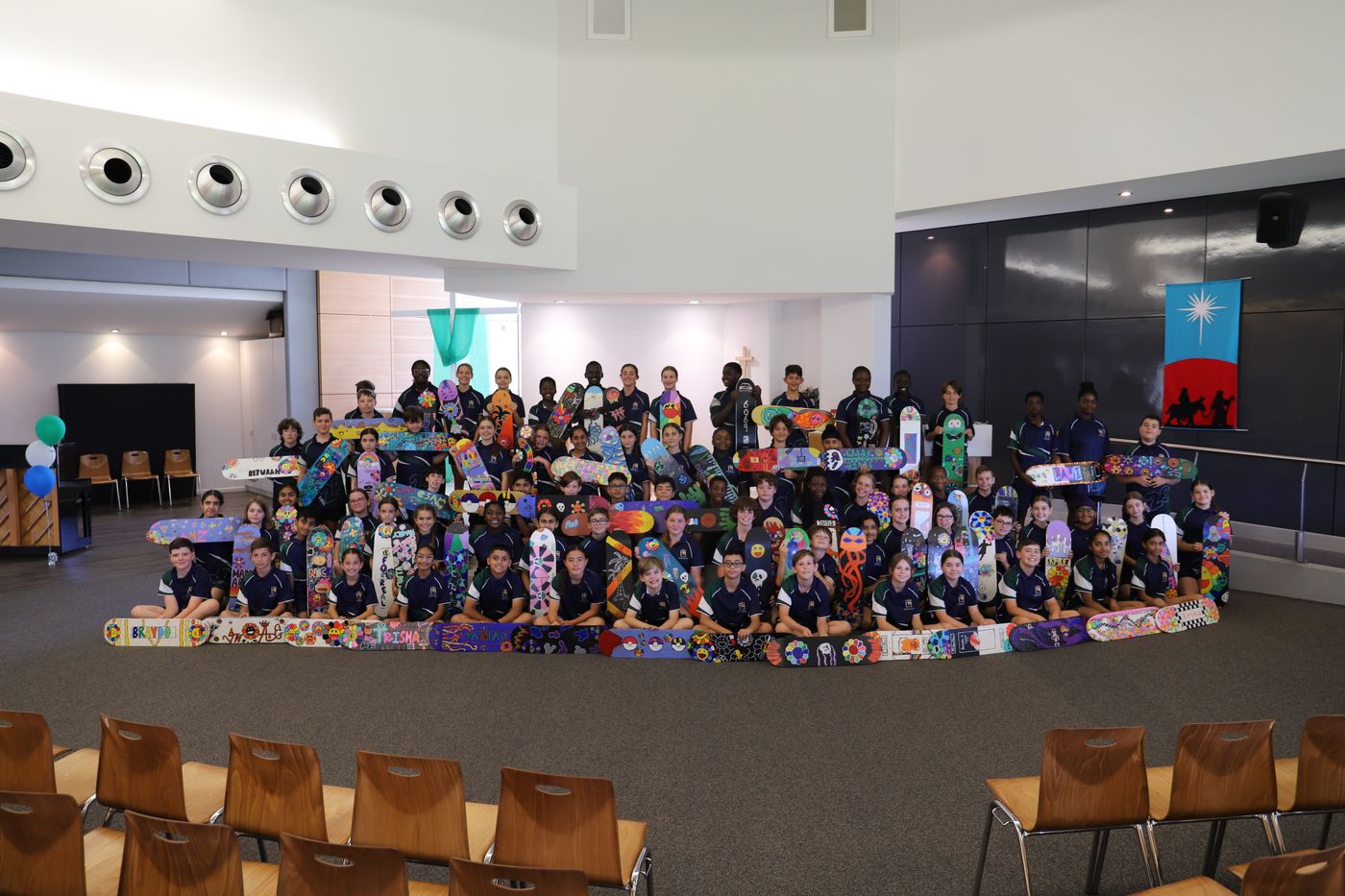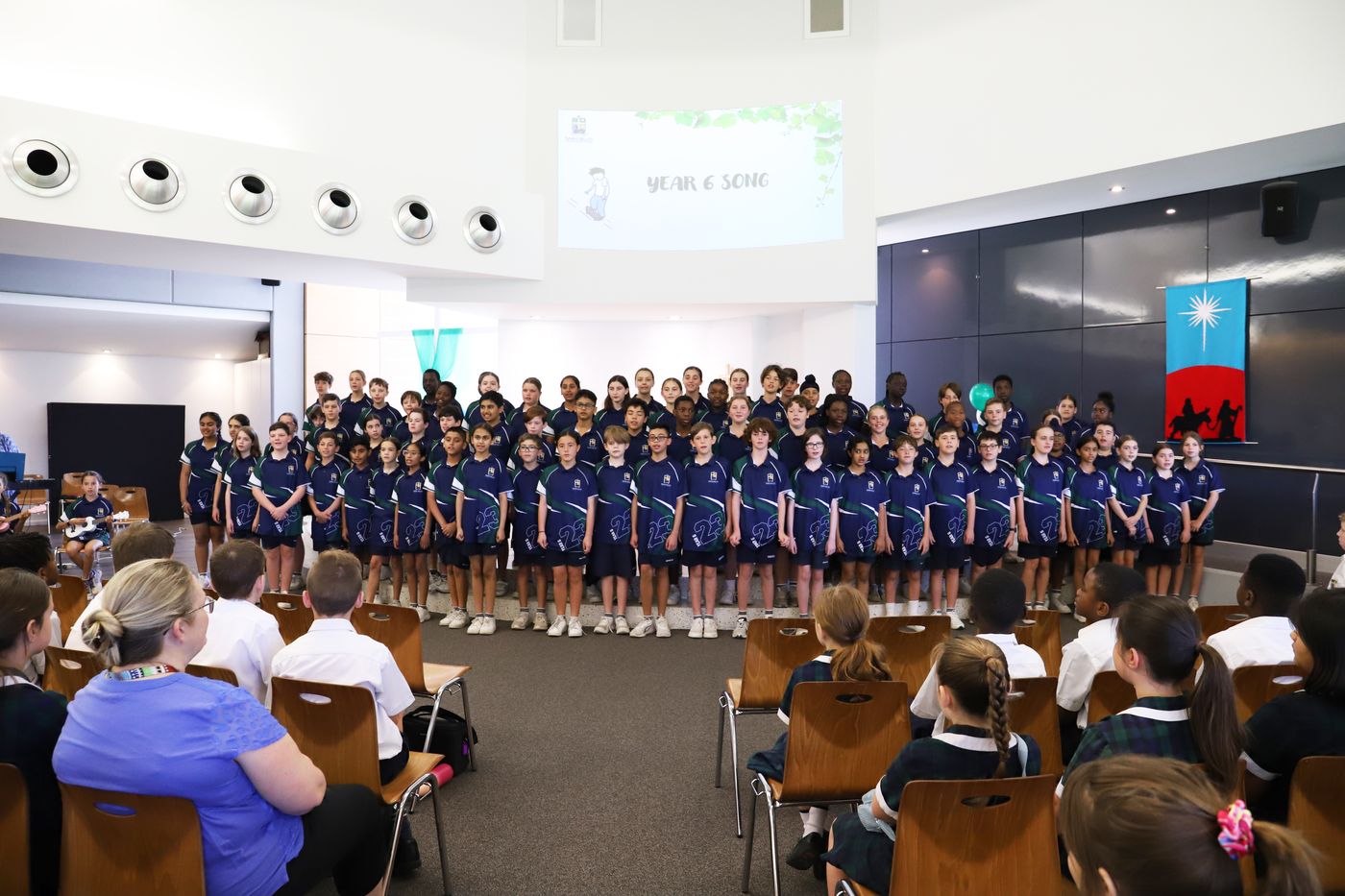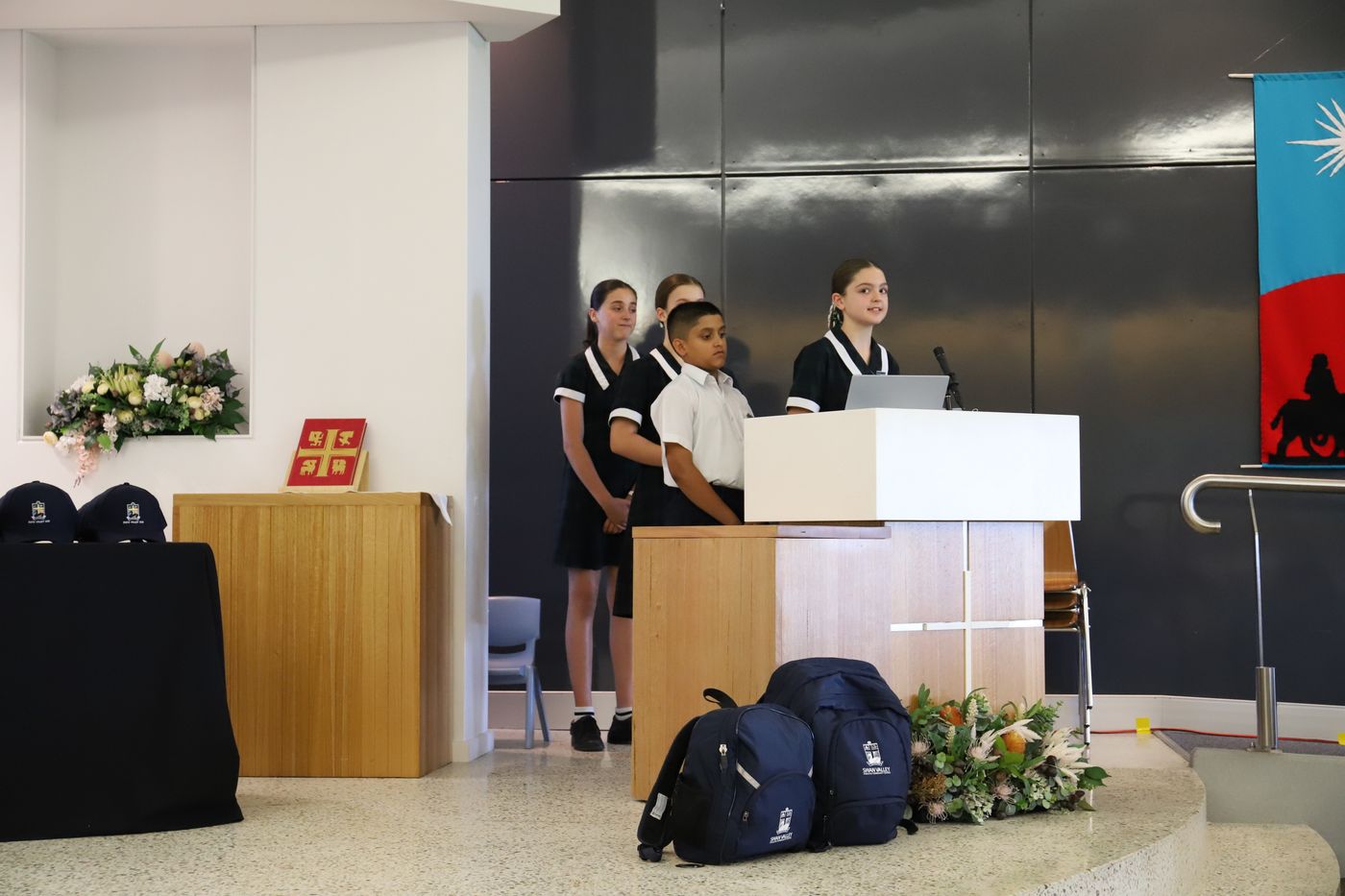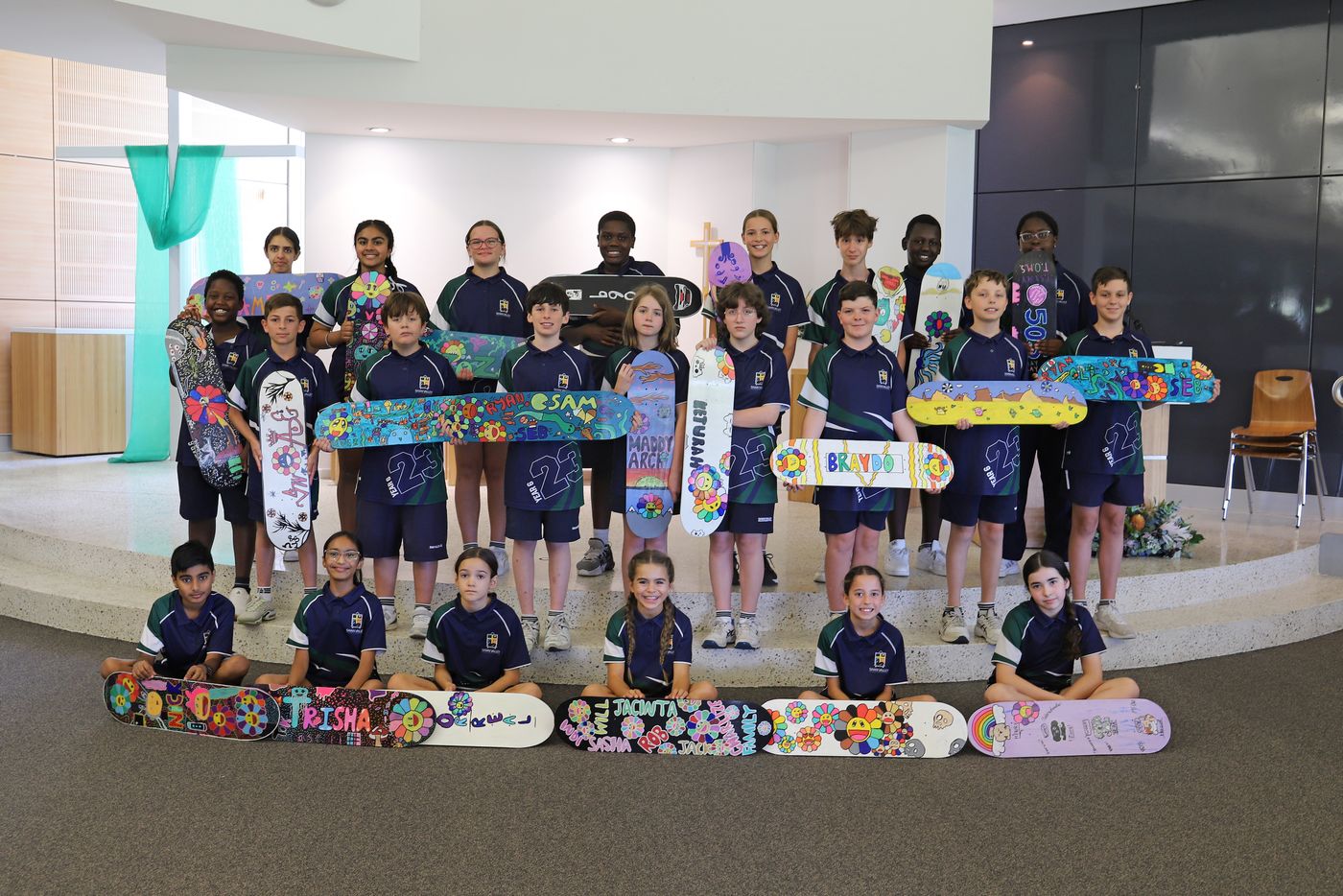This term we have been trialling a different way of organising secondary Chapel. PCGs now take it in turns to provide leaders who read from the Bible, write and lead prayers and read the Acknowledgement of Country. PCGs work together with their teacher to consider what should be prayed for, so the prayers reflect the concerns of the student body.
There are also non-speaking roles, including lighting and extinguishing candles, choosing hymns, handing out booklets and being role-models of Chapel manners while standing at the entrance doors. There is something for everyone to do, regardless of faith. We hope this participation and ownership of the time helps all students feel they belong and benefit from Chapel.
Perhaps the most helpful for me is the role of Reviewer. These students sit at the front, and at the end of Chapel, offer me feedback. I like to know what message/s they heard in the homily, as everyone will understand something different depending on bias, interest and beliefs. They can also reflect with me on what works or is not effective in Chapel, and I can take their views on board for future planning. Most importantly, students can use their voice, and I can get to know them better.
I have been most impressed by the commitment shown by students taking roles, and we are gradually establishing an atmosphere of reflection, worship and prayer, aided by silence as we enter Chapel.
This week, the Bible reading was the Parable of the Talents. We thought about the gift of silence, which is rare and precious in most of our lives, and benefits people of all faiths and none. Then we reflected on the gift of life we all share, and the non-instinctive Christian teaching that life, and all spiritual gifts, increase in value when they are shared, used, offered and given away: this is most supremely shown in Jesus’ sacrifice on the cross, but also in his life and the lives of Christians who serve and love others.
Junior Chapel considered the implications of God making Jesus’ birth known both to humble, local shepherds, who have nothing to give except love, and wise men from afar, who offer sacred gifts of mystic meaning. Surely this means the message of Christ’s birth as Saviour is for the whole world: rich and poor, near and far, wise and unwise, powerful and weak. God does not discriminate.
In Early Years Chapel we enjoyed a performance by Mrs Crabtree, Mrs Crawshaw and Mrs Palmer of a café drama, which helped us think about waiting: looking forward to something special that we don’t have all the time; the longer we wait, the more we celebrate when it comes. This of course reminds us of the season of Advent: waiting and watching for the coming of Jesus at Christmas before starting our celebrations.
Father Toby
School Chaplain





 Early Years students held a beautiful Remembrance Day Assembly where each class presented a wreath to contribute to the Remembrance Board. Secondary and Junior Years students also took part in a reflective and moving Remembrance Day Service where we honoured those who fell in war, conflict, and peacekeeping. Led by the 2024 Prefects, the service included prayers, the laying of wreaths, and pinning poppies to our Wall of Remembrance.
Early Years students held a beautiful Remembrance Day Assembly where each class presented a wreath to contribute to the Remembrance Board. Secondary and Junior Years students also took part in a reflective and moving Remembrance Day Service where we honoured those who fell in war, conflict, and peacekeeping. Led by the 2024 Prefects, the service included prayers, the laying of wreaths, and pinning poppies to our Wall of Remembrance.



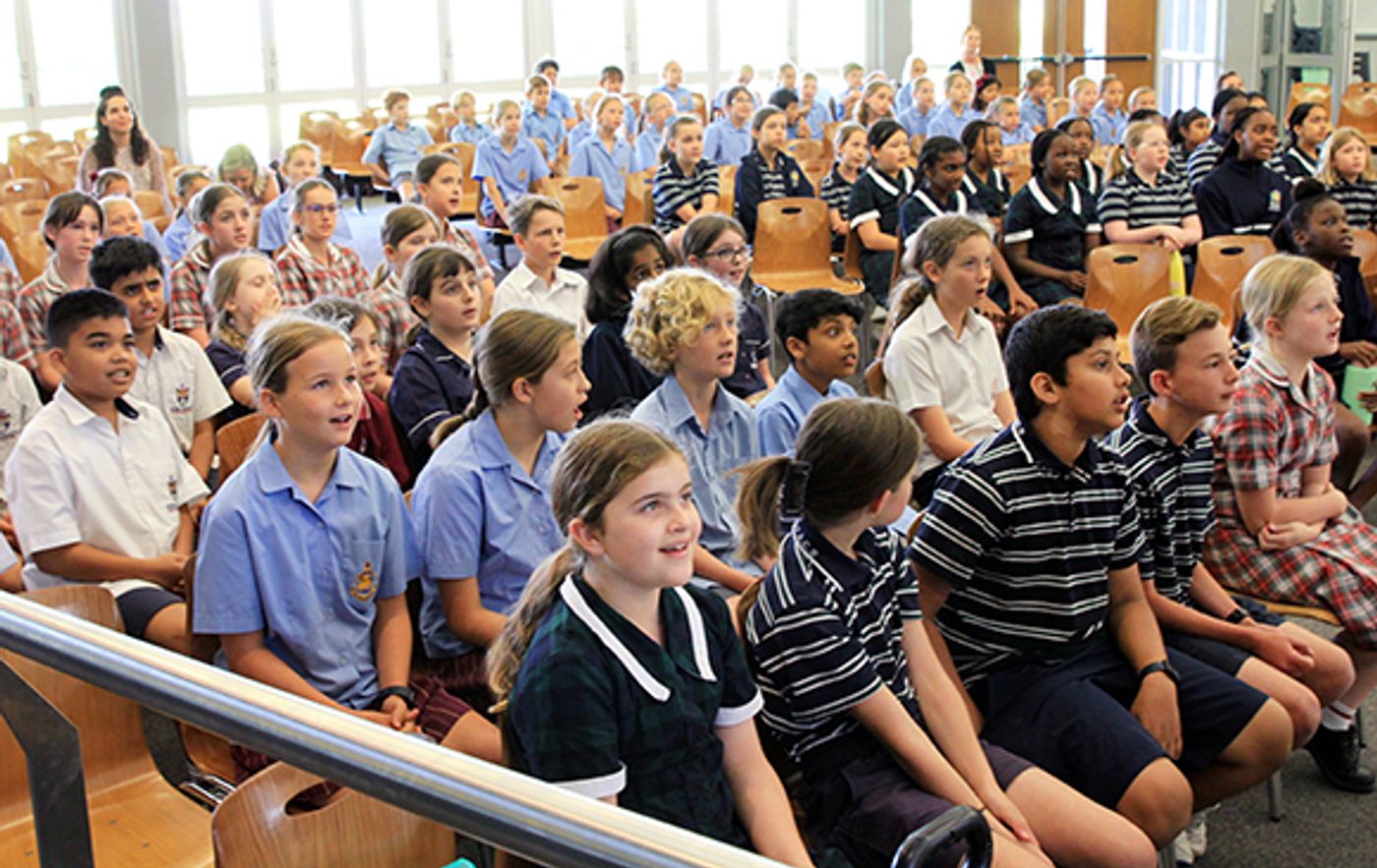


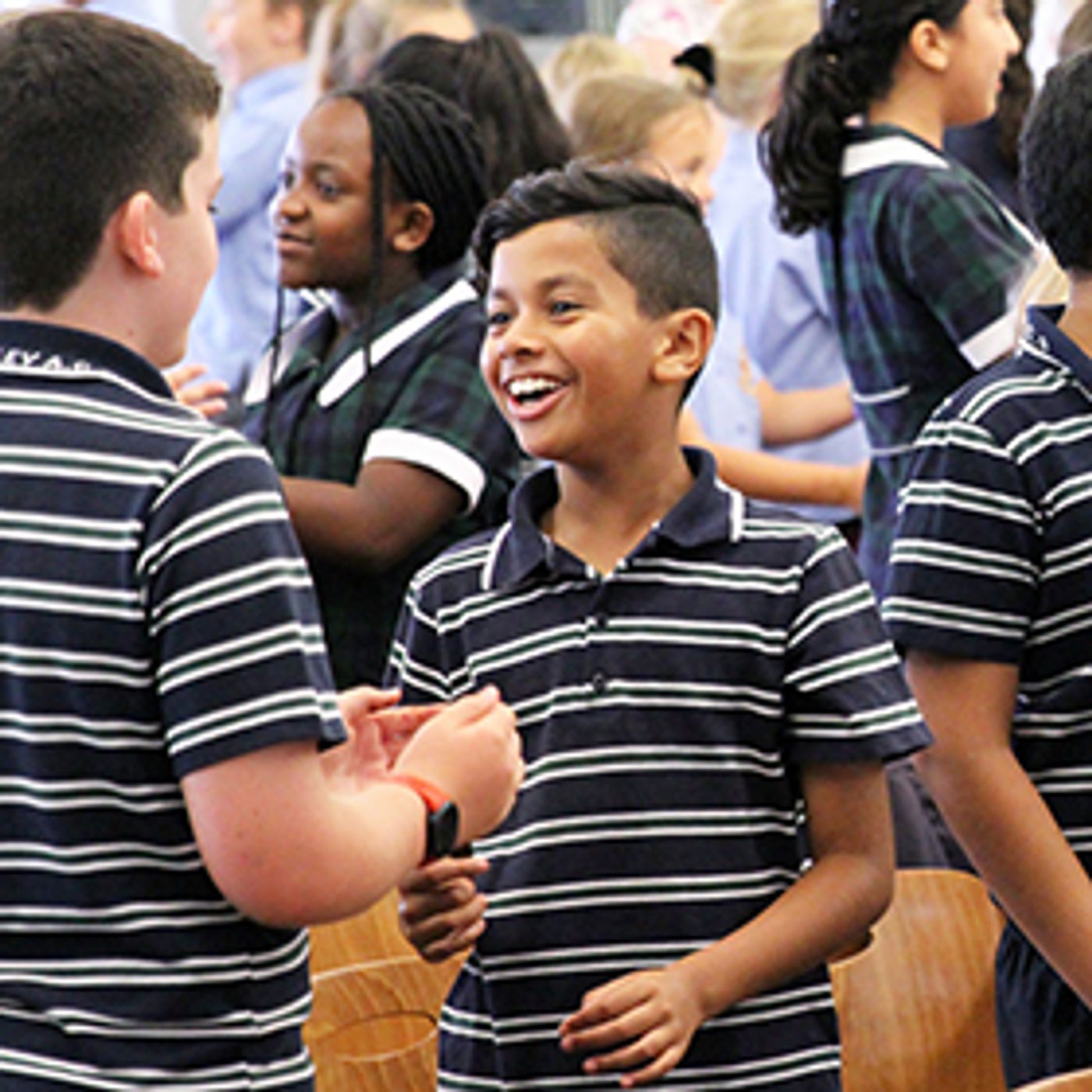

 Portia Ferguson
Portia Ferguson Cooper Triggs
Cooper Triggs 
